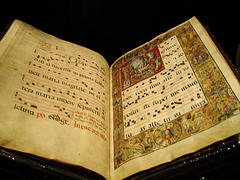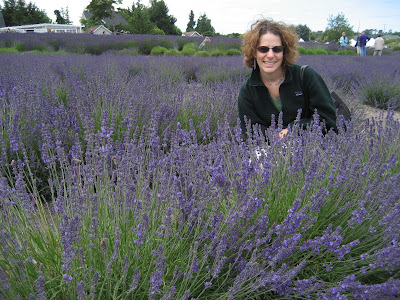 After nearly one hundred pages of secondary research, a bibliography of almost 150 sources, an outline, and at least a vague idea of what my actual thesis topic is, I am ready to hit the archives. This means that, rather than read what other people have to say about primary sources, I get to actually put my hands on the documents themselves! I have this romantic notion that I will immediately be able to decipher the ancient forms of language, and, perhaps on my second (or third) day stumble upon that hitherto-undiscovered piece of information that will not only unlock the secret to all things Peter Philips but may also secure me a spot in musicological history.
After nearly one hundred pages of secondary research, a bibliography of almost 150 sources, an outline, and at least a vague idea of what my actual thesis topic is, I am ready to hit the archives. This means that, rather than read what other people have to say about primary sources, I get to actually put my hands on the documents themselves! I have this romantic notion that I will immediately be able to decipher the ancient forms of language, and, perhaps on my second (or third) day stumble upon that hitherto-undiscovered piece of information that will not only unlock the secret to all things Peter Philips but may also secure me a spot in musicological history. Walking into the Algemeen Rijksarchief (the Belgian State Archives) and beginning a search through old documents requires only the ability to find the buidling from the Central Train Station in Brussels, fill out a little form, have your picture taken for the ID card, and pay 10 euros. No need for the passport, letters of invitation, proof of residency, and every other bit of information I have learned to carry with me when embarking on new events. Once you have your card in hand you can settle in amongst other eager students pouring over books, maps, papers, and all sorts of other interesting documents. You look up your documents in a catalogue, walk over to the computer, type in the requested information, and--voila!--30 minutes later your documents arrive via an ancient little elevator lift from the basement where the mysterious archival "elves" scurry around, selecting your requested box from among thousands of other dusty little boxes and sending it on its way to your eager little hands. I have images of these workers being a little like the creatures that work in Gringott's bank in J.K. Rowling's Diagon Alley. Perhaps I will never know...
For me the first task was determining exactly what set of documents I needed to examine. Archival research can be a little like a fishing expedition, and the key is to LOOK like you know what you're doing, even if you aren't exactly sure. The catalogues themselves range from detailed accounts of documents to vague descriptions--"Various papers belonging to the Royal Court, 1396-1743"--and that sort of thing. Unfortunately my own research covers such a wide swath of topics ranging from music to liturgy that I could really take a stab at looking just about anywhere. I am also hampered by the fact that many documents from my time period, 1598 to 1628, have gone missing or have been destroyed for one reason or another. So on my first day I thought I would start with something relatively simple: correspondence between Brussels and Rome in the early seventeenth century.
Well, five hours later I didn't manage to stumble across that jaw-dropping piece of information, but I did manage to learn a lot about old books (very moldy), old handwriting (nearly illegible), and courtly diplomacy (for example, when one writes to the Pope, one begins with a VERY lengthy and suitably humble introductory phrase that in itself should take up at least half the page.) My plan at the moment is to spend at least two days a week in the archives, fishing around for various little bits of information that can help support my thesis. Wish me luck!

No comments:
Post a Comment